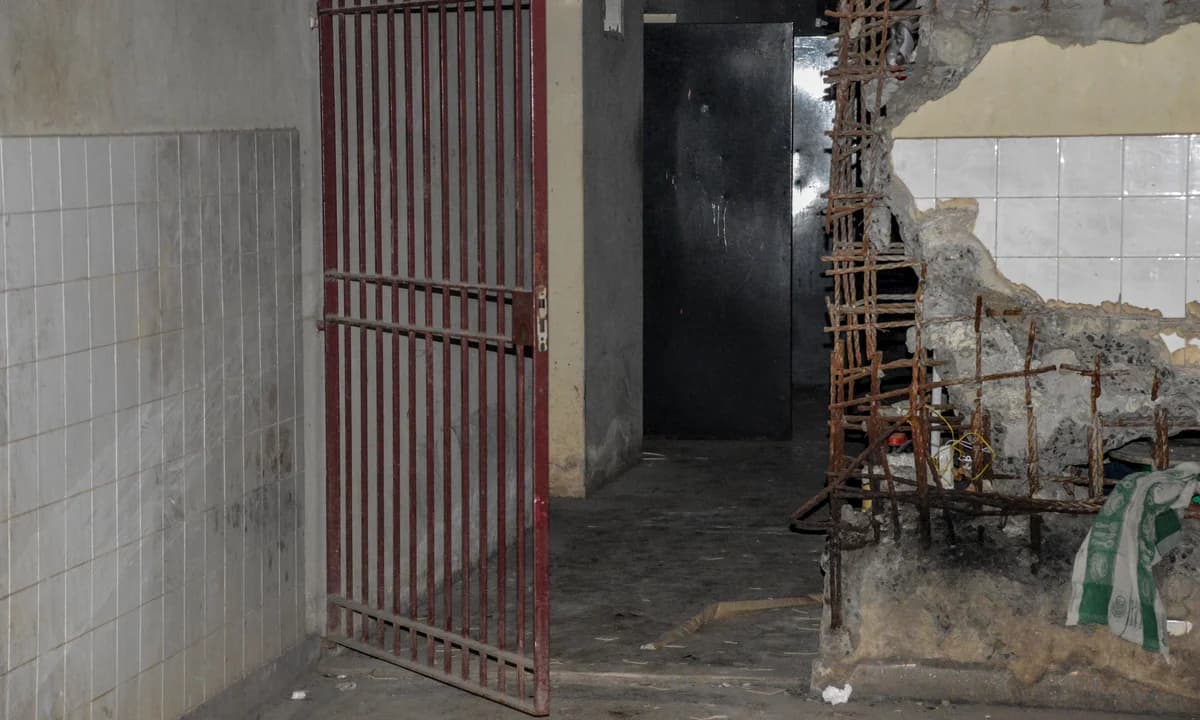We're loading the full news article for you. This includes the article content, images, author information, and related articles.
Decades after serving as a notorious torture center, Nyayo House now symbolizes state dysfunction through chronic delays and corruption in passport services, prompting renewed calls for accountability and memorialization in Kenya.

Nyayo House, an imposing 27-storey skyscraper in Nairobi's central business district, holds a dark and dual identity in the Kenyan consciousness. Completed in 1983, its basement floors were notoriously converted into torture chambers under the government of former President Daniel arap Moi. Architectural plans later revealed that the basement cells were specifically designed for torture, featuring details like water-sealed doors to allow for flooding and vents to pump in dust-filled air. During the pro-democracy crackdown of the 1980s and early 1990s, thousands of political activists, academics, and students were detained and subjected to horrific abuse in these cells, including being held in darkness, beaten, and starved. The Truth, Justice and Reconciliation Commission (TJRC), established after the 2007-2008 post-election violence, investigated these atrocities, confirming the building's role as a center for gross human rights violations. Survivors have recounted harrowing experiences of being denied food and water for weeks, living naked in flooded cells, and enduring brutal interrogations on the building's 26th floor.
Today, the building that once inspired political terror is the headquarters for the State Department for Immigration and Citizen Services, and for many Kenyans, it represents a different kind of torment: systemic corruption and bureaucratic failure. For years, the process of acquiring a passport has been marred by extensive delays, with backlogs reaching over 700,000 applications by early 2024. This dysfunction has been attributed to a deeply entrenched network of corruption, where brokers and rogue officials solicit bribes to expedite applications. An exposé by the Nation detailed how these cartels have captured operations, forcing citizens to pay hefty sums to obtain the essential travel document. A report by the Commission on Administrative Justice (CAJ) in June 2023 further exposed malpractices, including Kenyans being overcharged for passports with fewer pages than they applied for.
The persistent public outcry has forced the government to act. Interior Cabinet Secretary Kithure Kindiki has made numerous impromptu visits to Nyayo House since 2023, vowing to dismantle the corrupt networks. In August 2023, CS Kindiki declared the passport center a "crime scene" and initiated a crackdown that has led to the arrest of several immigration officers and brokers. He has publicly taken responsibility for the slow pace of reforms, citing years of under-investment and supplier debts as contributing factors. To address the backlog, the government has acquired new printing machines capable of producing up to 5,000 passports daily and has settled outstanding supplier debts. As of early 2025, officials stated the backlog was cleared and processing times were significantly reduced. Furthermore, new service halls have been established to streamline the application process.
Despite recent reforms, the building's reputation remains tarnished. A November 2025 Daily Nation column labeled Nyayo House a "monument of the shame of a dysfunctional government," citing not only the passport crisis but also the physical decay of the building, such as non-functional lifts. The dual legacy of past atrocities and present-day corruption has fueled a persistent campaign by survivors and human rights organizations to have the torture chambers converted into a national monument. The TJRC report explicitly recommended this action to serve as a form of symbolic reparation and a reminder of Kenya's dark past. In June 2024, a lawsuit was filed by the Kenya Human Rights Commission (KHRC), the Law Society of Kenya (LSK), and four survivors to compel the government to open the chambers to the public, challenging a 1991 legal notice that designates it a protected area. Proponents argue that creating a memorial or a 'site of conscience' is essential for national healing and ensuring that such state-sanctioned brutality is never repeated. As Kenya grapples with the echoes of its history, Nyayo House stands as a powerful symbol of both the state's capacity for cruelty and its ongoing struggle to provide basic, transparent services to its citizens.
Keep the conversation in one place—threads here stay linked to the story and in the forums.
Sign in to start a discussion
Start a conversation about this story and keep it linked here.
Other hot threads
E-sports and Gaming Community in Kenya
Active 9 months ago
The Role of Technology in Modern Agriculture (AgriTech)
Active 9 months ago
Popular Recreational Activities Across Counties
Active 9 months ago
Investing in Youth Sports Development Programs
Active 9 months ago